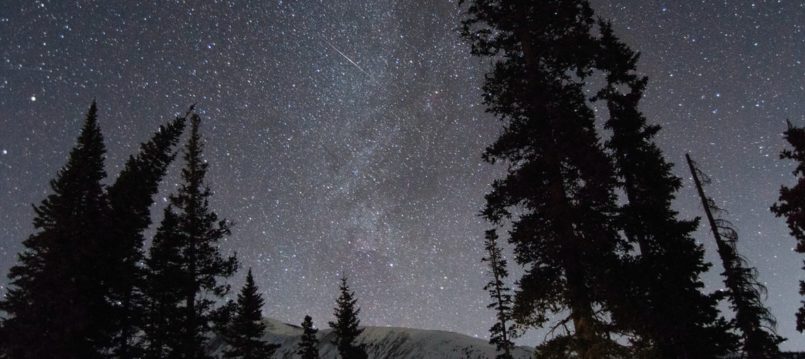
Stargaze From Your Hot Tub: End of 2021’s Astronomy Events
The crisp air has arrived and relaxing in your hot tub on a more routine basis just became significantly more appealing. One of the best things to do while taking a dip is to gaze up at the night sky. Teach your kids about the solar system by pointing out constellations or challenging each other to spot a shooting star. Whether it’s a full moon, meteor shower, or total eclipse, the sky is always putting on a show for us. You can witness it from your very own backyard – no trip to a remote desert or mountain top required!
Check out our list of dates below for the best nights to see something extra special, and hey, you may even spot some extraterrestrial life out there.
October 8: Draconid Meteor Shower
The Draconid meteor shower will be active from October 6-10th and will peak at nightfall or early evening on October 8th. Check out this link for more info.
October 17: Eris at Opposition
You’ll need a telescope or binoculars to see Eris, the largest dwarf planet on this night. It will be visible for much of the night. To spot it, look for the dwarf planet in the constellation Cetus. Visit this link for more.
October 21: Peak of the Orionid Meteor Shower
The Orionid meteor shower occurs each year in October. This year it will be visible from October 2nd-November 7th with peak activity on October 21st. Click link for more information.
November 17: Peak of the Leonid Meteor Shower
The second-to-last major meteor shower of the year occurs from November 6-30th with November 17th being the peak viewing night. Check out this link to find out how to spot some meteors.
December 12: Conjunction of Venus & Pluto
On December 12th, Venus and Pluto will be at conjunction and within 0°20′. This is the perfect opportunity to grab a telescope or binoculars see both Venus and Pluto, since the two will be close enough to spot through the single view in the constellation Sagittarius. See this link for more information.
December 14: Peak of the Geminid Meteor Shower
Finally, mark your calendar for the most active meteor shower of the year which happens from December 4-17th with the peak days being December 13-14th. On the night, of the 14th you can expect to see up to 120 meteors per hour! Visit this link for more information.
Wherever you soak, all you have to do is look up to get a better show than you’ll ever get on your phone. Dig that old telescope out of the garage before your next soak and put it to good use, from the comfort of your very own warm water haven.
See something truly out of this world? Let us know on social media!
